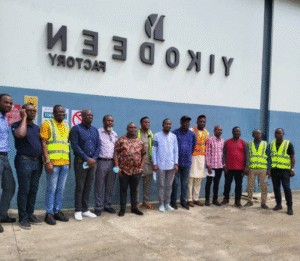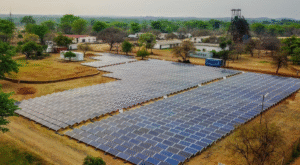Farouk Ramji, Mawingu’s Chief Executive Officer, described the funding as a watershed moment for the company.
“As a multi-country operator with a committed footprint in rural and peri-urban markets, this latest capital injection brings us ever closer to realizing our ambition to positively transform the lives of 1 million people in Africa by 2028,” he said.
Mawingu operates in a part of the continent where broadband penetration remains consistently low, particularly beyond the major cities.
Many rural and peri-urban communities continue to struggle with high costs, limited infrastructure, and sporadic service.
To close that digital divide, Mawingu pursues a buy-and-build model, acquiring and deploying network assets and operating them in regions that traditional providers often overlook.
Ridwaan Tayob, who spearheaded the investment on behalf of PRIF II, praised Mawingu’s measured approach to growth.
“Their history of disciplined scaling and creative problem solving in underconnected markets makes them a stand-out partner,” he remarked.
“We are confident in their capacity to grow sustainably across Africa, and we are honored to support their mission to deliver impactful connectivity where it is most needed.”
According to public reports, the funding from PRIF II comes at a pivotal moment, with earlier reports suggesting the fund is positioning itself to acquire a 35 percent shareholding in Mawingu, granting it a controlling interest in the company.
Mawingu’s growth trajectory has already included debt-financing rounds—such as the approximately US$15 million debt raised eight months prior—and strategic acquisitions like the purchase of the Tanzanian ISP Habari.
The company has expanded from offering wireless connectivity over unused TV spectrum to incorporating fiber optics and fixed-wireless deployments in underserved parts of Kenya.
Alongside that technical evolution, Mawingu has grown its customer base—from just over 16,000 subscribers in 2022 to nearly 59,000 by March 2025—while grabbing approximately 3.2 percent of Kenya’s fixed internet market.
The reinvestment by PRIF II marks a structural shift for Mawingu—from relying predominantly on debt and development financing toward placing equity investors at the center of its capital base.
For PRIF II, this move reflects a broader bet on digital infrastructure in Sub-Saharan Africa: the fund, backed by institutions such as the African Development Bank, the European Investment Bank, and British International Investment, plans to channel resources into digital networks, renewable energy, logistics, and related infrastructure across emerging markets.




